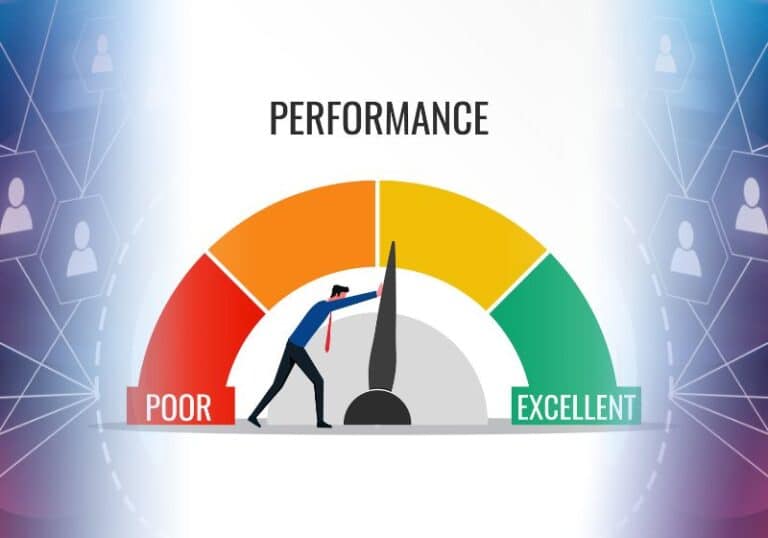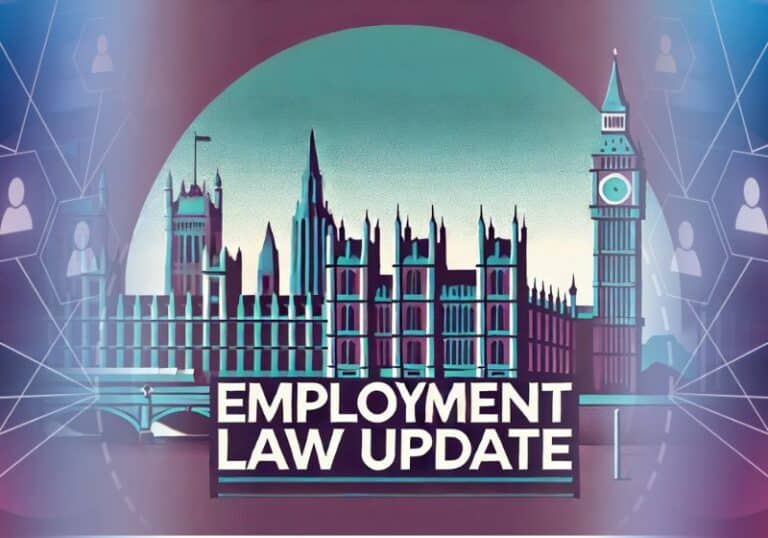A Wake-Up Call for Effective Probation Management

Are you a business owner who has historically taken a relaxed approach to managing probation periods? Will it surprise you that you are not alone! Like many employers, you have found them to be too burdensome and have taken comfort in the two-year qualifying service requirement for unfair dismissal claims, which, let’s face it, provided a buffer to address performance issues without immediate legal repercussions.
However, with the new Labour government’s proposed introduction of day one rights for employees, this complacency is no longer viable. Suddenly, you may find yourself faced with the urgent need to be more proactive in managing probation periods.
Gone are the days when you could afford to delay addressing performance issues. Now, you must implement structured and regular performance reviews, provide clear and constructive feedback, and meticulously document every interaction and assessment.
The transition from a relaxed to a proactive approach in managing probation periods is a wake-up call for many business owners and line managers alike.
The Rising Importance of Probation Periods in a Changing Employment Landscape
As the winds of political change blow across the country with the election of a new Labour government, the landscape of employment law is poised for a significant transformation. One of the cornerstone promises of this government is the introduction of “day one rights” for employees, fundamentally altering the dynamics of workplace relationships. This will mean that employees will no longer need to complete a qualifying period of service to lodge an unfair dismissal claim with an employment tribunal.
With the proposal to introduce day one rights for employees, a significant change in attitude towards probation periods is essential for employers. This proposed change means that employees will be able to bring claims for unfair dismissal from the very start of their employment, elevating the importance of probation periods as a critical evaluation and integration phase.
I cannot stress enough the importance for Employers to adopt a proactive and thorough approach to managing probation periods, ensuring fair and transparent assessment processes.
This change in attitude will not only safeguard against potential legal claims but also enhance the quality of hires and foster a supportive and compliant workplace environment.
So let’s take a step back before we take a giant leap forward!
Understanding Probation Periods
A probation period, often referred to as a trial period, is a designated timeframe at the beginning of an employee’s employment with a new employer.
The length of a probation period can vary depending on the nature of the job, company’s policies and in some instances, industry standards.
Probation periods typically depend on the seniority of the role with junior roles ranging from one to three months. Roles that are more senior usually attract longer probationary periods ranging between three to six months.
In some cases, probation periods may extend beyond six months. This is less common but can occur in highly specialised fields or in positions requiring extensive training and development. For example, roles in sectors such as healthcare, engineering, or finance might necessitate extended probation periods to ensure the employee meets the rigorous standards required.
Of course, some roles might have shorter probation periods, lasting only one or two months. These are typically for positions with straightforward responsibilities or for temporary and contract roles where the evaluation period is condensed due to the nature of the employment.
A Crucial Testing Phase for New Employees
Probation periods serve as a critical testing phase for new employees, offering a structured timeframe for employers to evaluate the suitability of their hires. This period allows for a comprehensive assessment of an employee’s performance, adaptability, and cultural fit within the organisation.
By treating the probation period seriously, employers can ensure that new employees are meeting expectations and have the potential to succeed in their roles.
This phase involves regular performance reviews, constructive feedback, and thorough documentation, all aimed at making informed decisions about the employee’s future with the company.
The move towards more proactive management of probation periods is essential, especially in light of evolving employment laws that provide employees with greater protections from day one.
From Complacency to Proactive Management
With the new employment law landscape facing us, there needs to be a shift towards probation periods.
Historically, many employers have approached probation periods with a degree of complacency, largely due to the perceived safety net provided by the two-year qualifying service requirement for unfair dismissal claims. This legislative cushion often led to a lack of rigor in managing probation periods, with managers sometimes neglecting thorough performance reviews and feedback.
The relative protections offered by the two-year period allowed employers to delay addressing performance issues, under the assumption that they had ample time to resolve such matters without immediate legal repercussions.
However, with the Labour government’s proposed introduction of day one rights, this complacency must be replaced with a proactive and structured approach to probation management. Employers can no longer afford to overlook the importance of diligent performance reviews and regular feedback during the probation period.
Practical Management of Probation Periods
Employers must now focus intensely on proper assessment and documentation from the very start of employment.
Managers will need to engage more actively in the probation process, ensuring that performance issues are identified and addressed promptly. This active engagement not only mitigates the risk of legal challenges but also promotes a more supportive and productive workplace where new hires are given the best opportunity to succeed.
While probation periods are essential for evaluating new hires, they can present several challenges if not managed properly.
With this in mind, employers must define and communicate clear performance goals and behavioural expectations from the outset. This helps new employees understand their roles and the standards they need to meet.
Frequent check-ins and comprehensive performance reviews should be conducted throughout the probation period. Detailed documentation of these interactions is crucial to provide evidence of fair treatment and constructive feedback.
Investing in thorough on-boarding and continuous tailored support and training during the probation period ensures that employees have the resources and support they need to succeed.
At the end of the probation period, a formal review should determine whether the employee meets the required standards. This process should be transparent, with clear criteria and documented outcomes.
Embrace the future by transforming your probation periods for a new era of Employment Rights
The proposed changes by the Labour government highlight the need for employers to rethink their approach to probation periods. Now is the time to take action!
Business can no longer can afford to be lax in their initial assessments and on-boarding processes.
A more proactive, structured approach to managing probation periods will not only help mitigate legal risks but also enhance overall employee performance and integration. This will ensure that both employers and employees can benefit from a fair, supportive, and transparent evaluation process from day one.
Failing to set clear objectives and expectations can leave employees confused about their roles and performance standards, leading to misalignment and underperformance. From the outset, line managers must clearly define the goals, responsibilities, and performance metrics for the probation period. Communicating these expectations through a written document and discuss them during the on-boarding process is key. Regularly revisiting these objectives during check-ins will go a long way to ensure alignment.
All too often when probation fails, common feedback from employees is that there has been insufficient feedback and communication. Infrequent or vague feedback can prevent employees from understanding how they are performing and what they need to improve. It is not good to provide feedback at the end of a probation period as this is usually too late.
A quick win is to implement regular feedback sessions, ideally at set intervals, more frequent in the early months, such as daily to weekly then to monthly. Provide specific, actionable feedback and encourage open communication. This helps employees understand their progress and areas needing improvement.
New employees may struggle to meet expectations if they do not receive adequate training and support, leading to frustration and failure to perform. It is an essential part of the probation period to develop a comprehensive on-boarding and training programs tailored to the new hire’s role.
I say this all the time – document, document, document! All too often, documenting the process becomes an administrative burden and short-cuts are taken. Failure to document performance reviews and feedback can lead to misunderstandings and legal vulnerabilities, especially if termination becomes necessary.
Maintaining detailed records of all feedback sessions, performance reviews, and any issues that arise during the probation period. Documenting both positive achievements and areas needing improvement.
This documentation will become crucial for making informed decisions and protecting against potential legal claims as managers will be able to demonstrate all interactions and assessments to ensure transparency and fairness.
A word of caution
Whilst employees do not need qualifying service to bring a discrimination claim, it is essential that managers must apply probation policies consistently as failure to do so can lead to perceptions of unfairness and discrimination, damaging employee morale and potentially leading to legal issues.
A day in the life of a manager gets busy and it is all too easy to ignore early warning signs.
Overlooking early signs of performance or behavioural issues can result in more significant problems down the line, making it harder to address them effectively.
Paying attention to early indicators of potential issues and addressing them promptly is essential. Having a candid conversation with the employee about any concerns and providing clear, actionable steps for improvement. Early intervention can often prevent minor issues from becoming major problems.
Final Review Processes
Rushing through the final review process without thorough evaluation can lead to poor decision-making, either retaining underperformers or losing potentially good employees.
Conducting comprehensive end-of-probation reviews that involve input from all concerned, such as supervisors, team members, and the HR department assessing the overall fit within the team and organisation.
At the end of the probation period, a formal assessment is conducted to determine if the employee has met the required standards. This evaluation will decide whether the employee will be confirmed in their role, have their probation extended, or, in some cases, be dismissed.
Conclusion
The evolving employment landscape, with the introduction of day one rights for employees, demands a fundamental change in how employers manage probation periods.
As business owners, you must now adopt a proactive stance, implementing structured performance reviews, clear feedback mechanisms, and meticulous documentation from the very beginning of employment.
By embracing proactive probation management, you will be in a stronger position to ensure fairness and accountability, setting the stage for long-term organisational success in this new era of employment rights.
For a closer look at this topic, explore our additional content
If you have any questions or would like some help, please get in touch with your advisor or get in touch here
Angela Clay
A qualified employment law solicitor and our managing director, Angela has unparalleled legal expertise and decades of experience and knowledge to draw from. She’s a passionate speaker and writer that loves to keep employers updated with upcoming changes to legislation, and is a regular guest speaker on BBC Leicester Radio.




